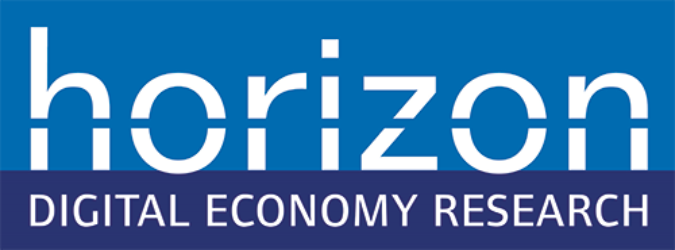
A toolkit to guide the use of immersive and emerging technologies to support the mental health of people in the community and voluntary sector.
Many different technologies can be used for mental health treatment and support, including immersive and emerging technologies – virtual reality and artificial intelligence – which many people are not familiar with. The HAWT Toolkit project will develop the Horizon Adoption of Wellbeing Technologies (HAWT) Toolkit to help organisations evaluate and implement these tools safely and effectively. The Toolkit will be co-developed with community and voluntary organisations that work with people who may benefit from these technologies and who are interested in adopting them, as well as experts from across disciplines, such as law and medicine.
The project focuses on digital mental health (DMH) – defined as including numerous types of technologies -from smartphones to extended reality systems – for mental health diagnosis, treatment, prevention, intervention, support and can be provided by a trained deliverer or direct to consumer.
HAWT Toolkit is led by Aislinn Gomez Bergin, a Transitional Assistant Professor with RAi UK. Aislinn has a rich background of research in digital mental health spanning development, evaluation and implementation activities and leads the i-Emerge project which engages the community and voluntary sector in emerging immersive technologies and how they can be used to effectively support the mental health and wellbeing of people in Nottingham.
Joining the project are Emily Thorn, Chris Greenhalgh and Sachiyo Ito-Jaeger – who are all also working on our Soma Co-designing project. Peter Craigon, a Research Fellow with interdisciplinary research experience and an interest in responsible innovation and the development of tools to support engagement with issues of responsibility. Elvira Perez Vallejos, Horizon Co-Investigator and Professor of Mental Health and Technology, brings a vast wealth of knowledge in this area and is interested in providing specific case studies on DeathTech and other new technologies for mental health, including grieving and end-of-life. Natalie Leesakul is an Assistant Professor in Law and Autonomous Systems with an interest in the regulation guidelines and best practices for the responsible adoption of new technologies. Finally, Anna-Maria Piskopani, a Research Fellow in IT Law joins the team, having worked in numerous interdisciplinary and multidisciplinary projects, her research interests are in human rights protection in emerging technologies ecosystems

